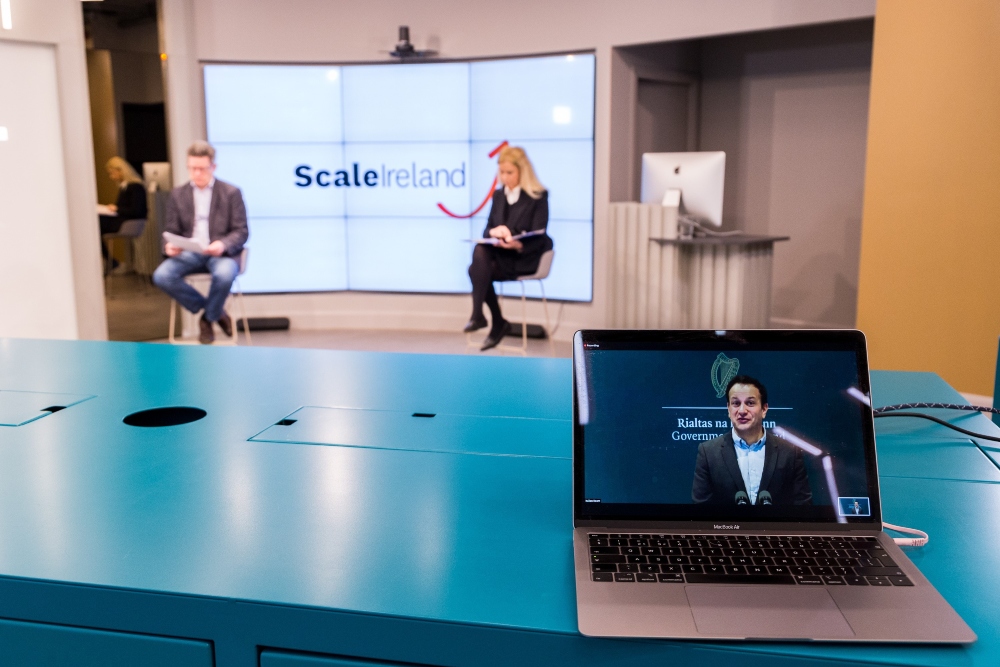John Cradden looks at the funding options available to growing businesses, from loans to crowdfunding and venture capital and more.
If you are an SME owner looking for funding, whether it’s for working capital or for expansion purposes, there are more options available than you might think – from a range of sources.
These include crowdfunding and peer to peer loans, but also credit available through both bank and non-bank lenders that are backed by the Government’s Strategic Banking Corporation of Ireland (SBCI) initiative, as well as microfinance loans through your Local Enterprise Office.
“Whether you are a micro enterprise, an SME or a small mid-cap operation, here is the lowdown on some of the main funding sources available to you and your company”
There’s also venture capital, angel investors and various tax relief schemes such as EIIS (Employment Investment Incentive Scheme).
So whether you are a micro enterprise, an SME or a small mid-cap operation, here is the lowdown on some of the main funding sources available to you and your company.
What is P2P/crowdfunding?
Online peer-to-peer (P2P) lending platforms, also known as crowdfunding, use the power of the crowd to connect small businesses in need of funding and potential lenders (both private and institutional investors) looking for profits. The platforms themselves do not invest their own funds and don’t provide protection for lenders; they act as intermediaries and provide additional services like risk assessment, payment transfers and portfolio management in exchange for a fee.
Online P2P lending is already big business in the UK and US. The sector has only been up and running here since 2013, but has already made some inroads into the lending market. According to the latest Bank Watch survey by small business organisation ISME, nearly 5% of SMEs who responded said they availed of this type of funding during 2021.
There is a small number of P2P online platforms offering loans starting from €5,000 or €10,000 to as much as €300,000 at interest rates starting from 6%. The main Irish players in Ireland include Linked Finance, Grid Finance and Flender, but more recent entrants include Spark Crowdfunding, which focuses on raising equity for SMEs, Property Bridges for property investors, and Fundit.ie.
Bear in mind one of the potential downsides of using P2P loans is that they are not covered by the Deposit Guarantee Scheme, which means there is no immediate recourse or protection for any monies deposited with a peer-to-peer outfit.
What is the SBCI?
Besides the firms in the crowdfunding space, there are a number of non-bank lenders like Finance Ireland, Fexco Asset Finance and Bibby Financial Services. They lend to SMEs and businesses too, but focus specifically on products like asset, invoice or trade finance.
Some of this lending is supported by the Strategic Banking Corporation of Ireland (SBCI), a State agency that aims to provide flexible and easier to access SME funding here through low-cost finance and risk-sharing schemes, and to support competition in the SME lending market.
Established in 2015 and supported the European Investment Bank and the NTMA among others, the SBCI lent some €819m to over 10,000 SMEs and agri-businesses during 2021, with an average loan amount of nearly €82,000. The advantages of these loans include more payment flexibility, lower interest rates and longer repayment terms (up to 10 years in some cases).
Among the loan products offered include term loans, leasing and hire purchase, invoice financing and loans for improving energy efficiency. The flagship product is the Future Growth Loan Scheme that offers loans over 7-10 years in support of strategic long-term investment.
All of the main banks and a number of non-bank lenders are among the ‘on-lenders’ for SBCI loans.
What is microfinance?
If you are a small firm with fewer than 10 employees and an annual turnover of up to €2m, you can apply for unsecured business loans of between €2,000 and €25,000, for a range of purposes from the Government’s Microfinance Ireland loan fund.
Available from Local Enterprise Offices, Local Development Companies and banks, but also directly from not-for-profit lender Microfinance Ireland, repayment terms can be up to five years.
What is venture capital?
Venture Capital is capital provided by full-time, professional firms (venture capitalists) who invest with management in ambitious, fast-growing companies with the potential to develop into significant businesses. Your product or service must also solve a clearly identified problem.
In addition to injecting cash into the company, the venture capitalist is likely to add considerably to the credibility of the firm and to supply management expertise, support and access to their contacts. As part of their mentoring and monitoring of their investment, they are likely to seek board membership.
Although venture capitalists are not looking for scheduled repayment like you would expect for bank finance, they may ask for minority of the share capital of your company in return for cash. They will typically look to realise their investment in five years, either through floatation on a public market, a trade sale or for their stake to be bought out by the company.
Venture Capital funds usually invest in companies that are raising more than €500,000 in equity.
What is angel investing?
Angel investors, also known as business angels are private individuals or groups that invest their capital into start-up companies and entrepreneurial ideas in return for partial company management and/or a return on a set amount of the company’s profit (known as an equity stake).
They often have other benefits for a company, such as experience in the particular sector and often a wide range of industry contacts that can help get your business in motion. They are also often the first investors in a company, with the average initial investment ranging between €50,000 and €250,000 individually, or can form syndicates with other angel investors for investment up to €500,000 and beyond.
What is the EIIS?
The Employment and Investment Incentive (EIIS) is a tax relief incentive scheme which allows individual investors to obtain income tax relief of up to 40% on investments made, in each tax year, into EII certified qualifying companies.
Since it replaced the Business Expansion Scheme in 2011, the scheme has undergone some changes and has been criticised for being a bit complex and bureaucratic, but some say it is an important source of funding for SMEs at times of economic uncertainty, or when risk appetite is on the wane.
A qualifying company can raise a lifetime maximum of €15 million in risk finance (subject to a limit of €5m in any 12-month rolling period) using this incentive, which it may not otherwise be able to raise. Among the benefits are that the funds raised sits as equity on the balance sheet rather than debt, thereby strengthening the company’s net asset value.






